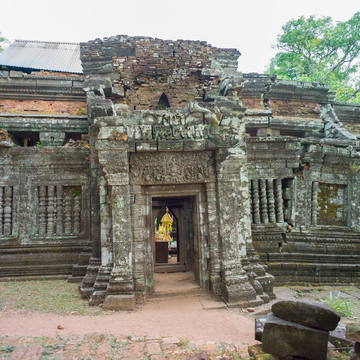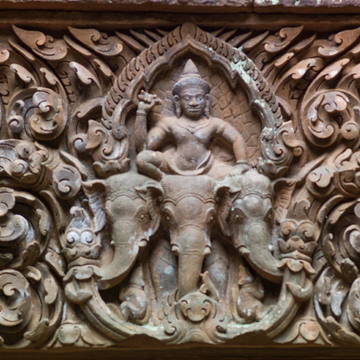Vat Phou and Associated Ancient Settlements within the Champasak Cultural Landscape
The Champasak cultural landscape, including the Vat Phou Temple complex, is a remarkably well-preserved planned landscape more than 1,000 years old. It was shaped to express the Hindu vision of the relationship between nature and humanity, using an axis from mountain top to river bank to lay out a geometric pattern of temples, shrines and waterworks extending over some 10 km. Two planned cities on the banks of the Mekong River are also part of the site, as well as Phou Kao mountain. The whole represents a development ranging from the 5th to 15th centuries, mainly associated with the Khmer Empire.


Justification for Inscription
Criterion iii The Temple Complex of Vat Phou bears exceptional testimony to the cultures of south-east Asia, and in particular to the Khmer Empire which dominated the region in the 10th–14th centuries. Criterion iv The Vat Phou complex is an outstanding example of the integration of symbolic landscape of great spiritual significance to its natural surroundings. Criterion vi Contrived to express the Hindu version of the relationship between nature and humanity, Vat Phou exhibits a remarkable complex of monuments and other structures over an extensive area between river and mountain, some of outstanding architecture, many containing great works of art, and all expressing intense religious conviction and commitment.

Lao People's Democratic Republic
Champasak Province
N14 50 54 E105 49 20
Date of Inscription: 2001
Criteria: (iii)(iv)(vi)
Property : 39,000 ha
Ref: 481



